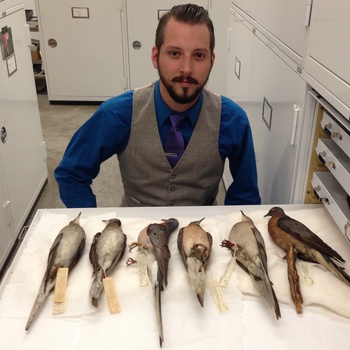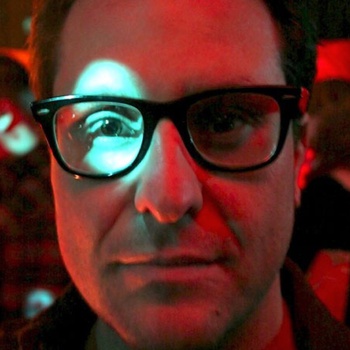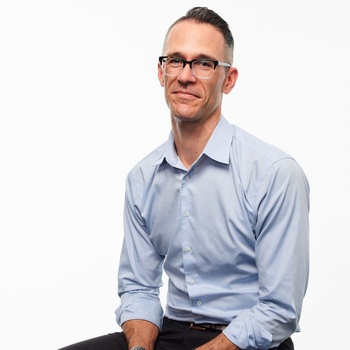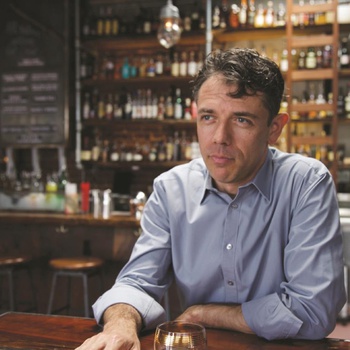Our Future in Algorithm Farming
Mike Kuniavsky

May 17, 02016
Everything will be connected to the network, even things that shouldn’t be. From automobiles to egg timers, Kuniavsky explains all these devices will try to get our attention and prove their value. They’ll also attempt to predict the future—at least the immediate future of our desires. But they won’t be very good at that for a while. In fact, for every 100 connected devices that are guessing your needs, if they were all right an impressive 99% of the time, there would always be one that’s wrong.
The range of human-machine interactions goes from the person making all the decisions to full automation (like the fuel injection inside a car engine). In between is tricky terrain, tasks that we aren’t sure if we trust computers to run themselves. When automation needs to be approved step-by-step or human judgement otherwise needs to be on call, then the "cognitive load” on the attendant can flip the equation. A poorly conceived labor saving device can turn an internet appliance worse than useless: a labor creating device.
How will ‘adaptive’ objects tell us that they are changing? Will we ever accept a fully automated airplane? Do you actually need a smart toaster if it’s only going to spam you? At the intersection of The Internet of Things, Machine Learning, and User Experience Design we should proceed with some caution as the stakes can be high or conversely benefits may be minimal. We are destined for a period of more gadgets than tools, as consumer & social standards evolve over time and myriad algorithms slowly amass learnings.
But Kuniavsky points out there is already a long history of smart thinking about these challenges, starting as early as the cyberneticists of the 01940s. The ongoing work of designers and engineers, such as Tom Sheridan and Bill Verplank in the 01970s, offers wisdom to keep in mind as things speed up.
“I’m neither a fan of or a critic of these technologies. I think they are actually too complex to be reduced in that way” says Kuniavsky. But after surveying a bit of the history and the state of “smart things” today, he offers up suggestions for the inevitable years ahead. Humans will need sober strategies to tame the menagerie of well-meaning bots, all trying to predict our needs in an unprecedentedly entangled world.
“We are at the beginning of this thing.”
Automated systems increasingly try to predict our behavior and needs; what do we do until they get good at it? The first talk in a new series from the team at PARC, the venerable research lab, UX designer and author Mike Kuniavsky takes a clear-eyed look at the benefits and risks of a future interwoven with algorithms. From May 02016.
Upcoming Talks
Videos

Johanna Hoffman
Speculative Futures: Design Approaches to Foster Resilience and Co-create the Cities We Need
October 12, 02022

Creon Levit
Space Debris and The Kessler Syndrome: A Possible Future Trapped on Earth
April 26, 02022

Brittany Cox
Horological Heritage: Generating bird song, magic, and music through mechanism
August 20, 02019

Elizabeth Lonsdorf
Growing Up Ape: The Long-term Science of Studying Our Closest Living Relatives
April 30, 02019

James Holland Jones
The Science of Climate Fiction: Can Stories Lead to Social Action?
January 29, 02019

Kevin Kelly, Stewart Brand, Alexander Rose
Siberia: A Journey to the Mammoth Steppe
January 22, 02019

Caroline Winterer
The Art and Science of Deep Time:
Conceiving the Inconceivable in the 19th Century
September 4, 02018

Esther Dyson
The Short Now: What Addiction, Day Trading, and Most of Society’s Ills Have in Common
July 17, 02018

Hannu Rajaniemi
The Spirit Singularity: Science and the Afterlife at the Turn of the 20th Century
July 10, 02018

Shahzeen Attari
Facts, Feelings and Stories: How to Motivate Action on Climate Change
June 26, 02018

Renée DiResta
Disinformation Technology: How Online Propaganda Campaigns Are Influencing Us
April 10, 02018

Scott Kildall
Art Thinking + Technology: A Personal Journey of Expanding Space and Time
August 15, 02017

Miles Traer
The Geological Reveal: How the Rock Record Shows Our Relationship to the Natural World
June 27, 02017

Andrew Lakoff
How We Became “Unprepared”:
Imagining Catastrophe from the Cold War to Bird Flu
May 30, 02017

Jennifer Petersen
Why Freedom of Speech Is More Than Speech:
Expressions in Media and Code
April 18, 02017

Tara Behrend
The Psychology of Surveillance:
How Being Watched Changes Our Behavior
February 28, 02017

Ben Novak
The Next Flight of the Passenger Pigeon: Engineering Nature's Engineers
September 27, 02016









































































